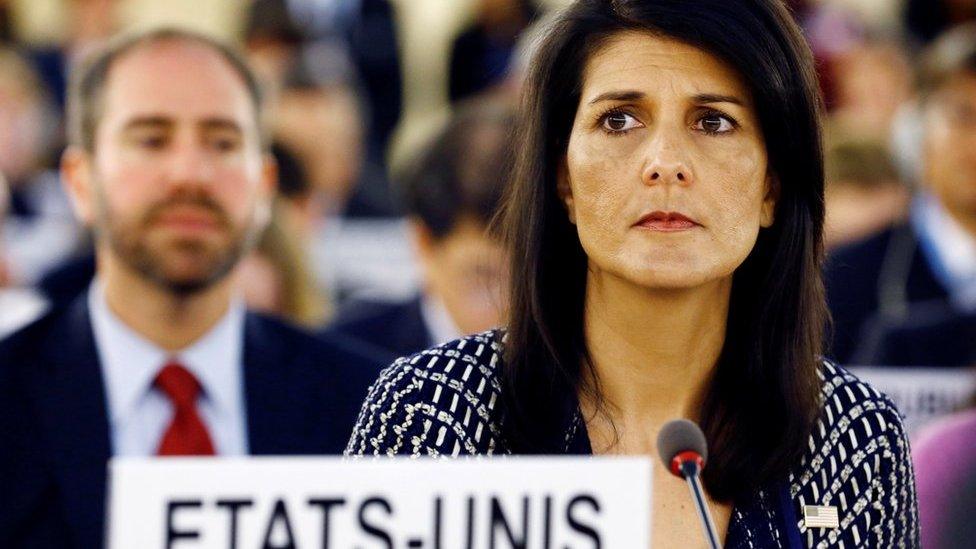US envoy Nikki Haley berates human rights groups
- Published
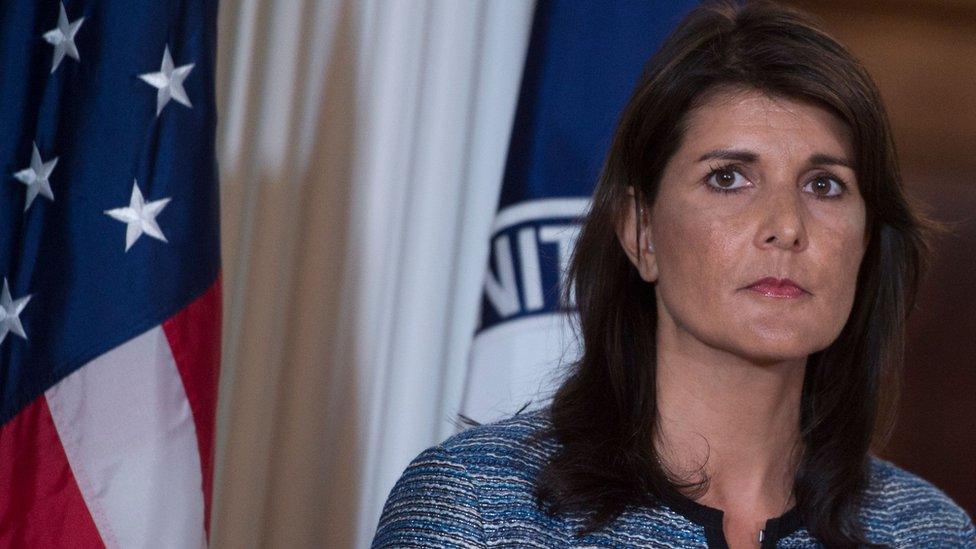
US envoy to the UN Nikki Haley said rights groups tried to "thwart reform" of the UNHRC
US envoy Nikki Haley has attacked rights groups for trying to "thwart reform" of the United Nations Human Rights Council (UNHRC).
In a letter, Ms Haley said groups worked "opposite the United States" and were partially to blame for the US withdrawal from the body.
The country withdrew from the UNHRC on Tuesday after accusing it of bias.
Her letter was sent to the International Humanist and Ethical Union, which represents 162 groups.
An image of the letter was posted on Twitter.
Allow X content?
This article contains content provided by X. We ask for your permission before anything is loaded, as they may be using cookies and other technologies. You may want to read X’s cookie policy, external and privacy policy, external before accepting. To view this content choose ‘accept and continue’.

Ms Haley berated the groups for not supporting proposed US changes to the UNHRC, saying they "sought to undermine" them and worked "on the side of Russia and China, and opposite the United States".
The letter says they were a contributing factor to the US withdrawal from the council due to their attempts "to block negotiations and thwart reform".
Human Rights Watch UN director Louis Charbonneau said it is "preposterous" to suggest rights groups were undermining reform attempts, and called claims of them backing Russia and China "absurd".
Mr Charbonneau tweeted that the US was "attacking and blaming NGOS for its own failures".
Allow X content?
This article contains content provided by X. We ask for your permission before anything is loaded, as they may be using cookies and other technologies. You may want to read X’s cookie policy, external and privacy policy, external before accepting. To view this content choose ‘accept and continue’.

The US pulled out of the UNHRC on Tuesday, calling it a "cesspool of political bias".
Announcing the decision to leave the council, Ms Haley described it as a "hypocritical and self-serving organisation" that displayed "unending hostility towards Israel".
She was speaking alongside US Secretary of State Mike Pompeo, who denounced the council as "a protector of human rights abusers".
Haley: Council has been a protector of human rights abusers
The US pulled out of the UN's cultural organisation Unesco in 2017, again for perceived bias against Israel.
Why did the US decide to quit?
The decision to leave the body follows years of US criticism.
The country initially refused to join the council when it was created in 2006, arguing that the body admitted nations with questionable human rights records.
HRW's Sarah Margon says other states "have to step up to the plate"
It only joined in 2009 under President Barack Obama, and won re-election to the council in 2012.
But human rights groups voiced fresh complaints about the body in 2013, after China, Russia, Saudia Arabia, Algeria and Vietnam were elected members.
This followed Israel's unprecedented boycott of one of the council's reviews, alleging unfair criticism from the body.
Last year, Nikki Haley told the council it was "hard to accept" that resolutions had been passed against Israel yet none had been considered for Venezuela, where dozens of protesters had been killed during political turmoil.
Israel is the only country that is subject to a permanent standing agenda item, meaning its treatment of the Palestinians is regularly scrutinised by the UNHRC.
- Published20 June 2018
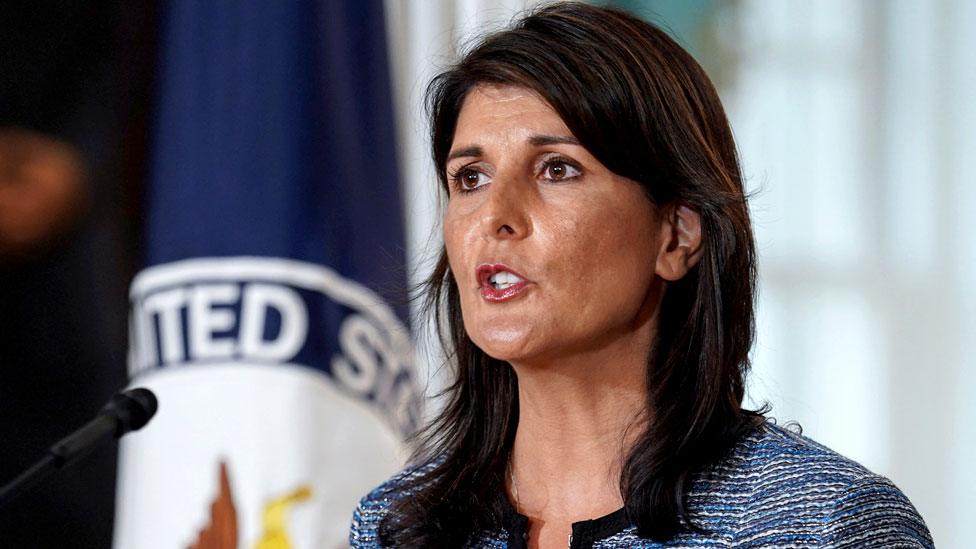
- Published20 June 2018
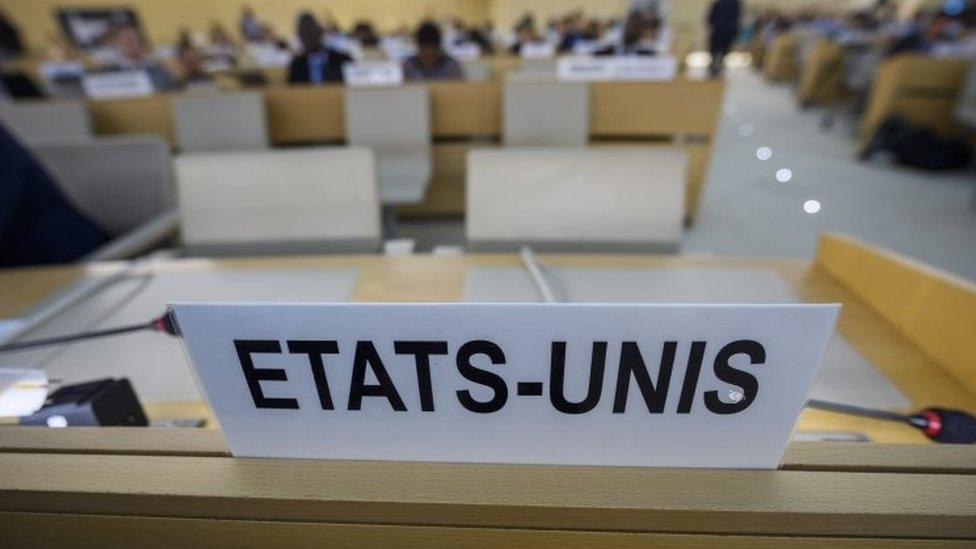
- Published19 June 2018
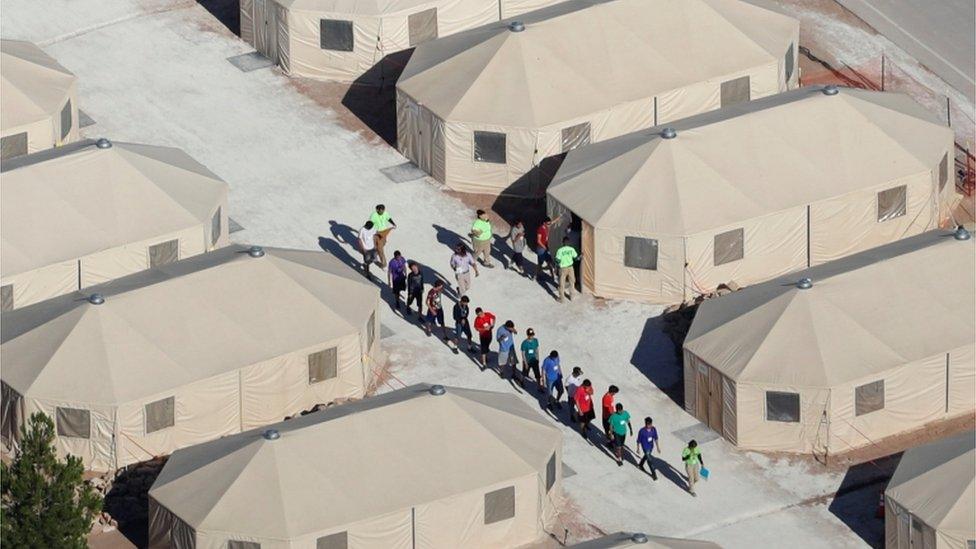
- Published9 May 2017
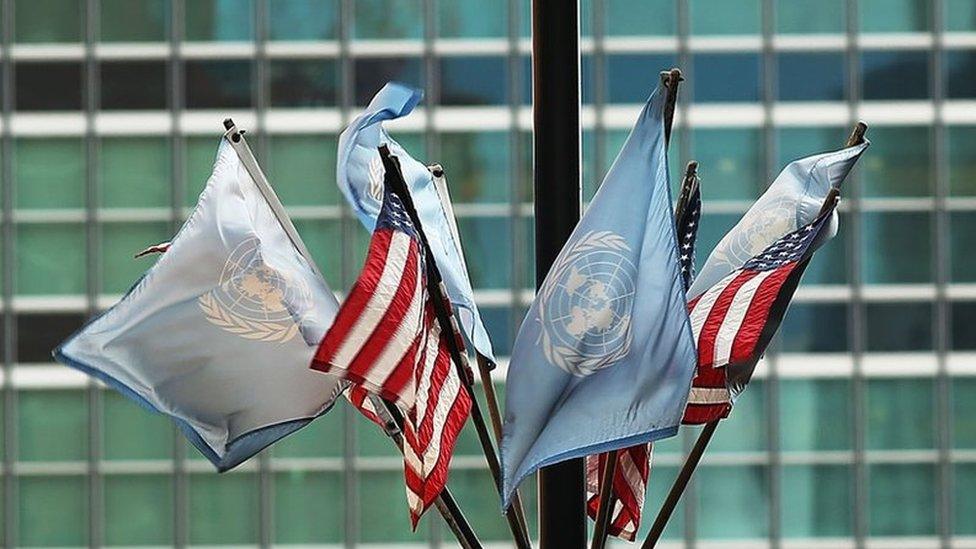
- Published30 December 2016
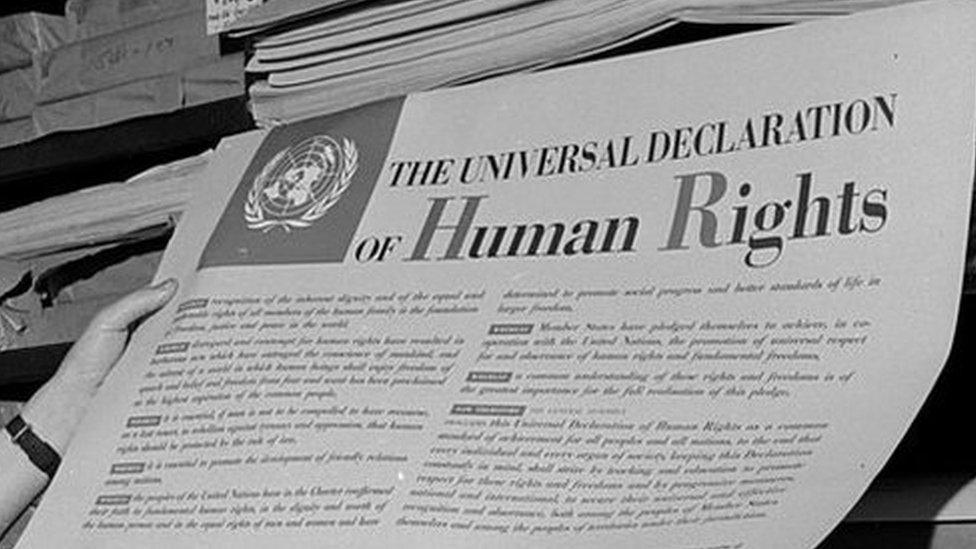
- Published6 June 2017
